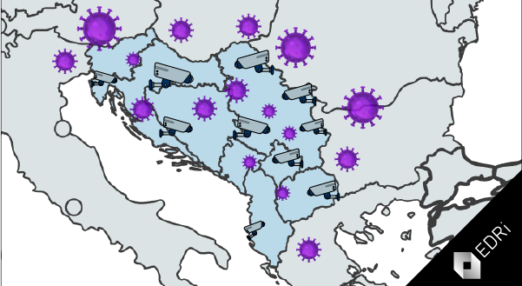On the ground
Filter by...
-

Hungary: “Opinion police” regulate Facebook commentaries
There have been a number of critical news reports from around the world stating that Hungary’s COVID-19 state-of-emergency legislation is “creating a chilling effect”. Such headlines miss the mark somewhat, as chilling effects are far from new.
Read more
-

German Constitutional Court stops mass surveillance abroad
The German Federal Intelligence Service (BND) has so far been able to spy on foreign citizens abroad en masse and without cause—even on sensitive groups such as journalists.
Read more
-

Xnet issues two complaints to improve data protection in Spain
Xnet highlights gaps in Spain’s adaptation of the EU General Data Protection Regulation (GDPR). The Spanish member of EDRi has opened two complaints to the European Commission related to the lack of effective adaptation of the data minimisation principle and the lack of conciliation between personal data protection and freedom of expression and information in the Spanish legislation.
Read more
-

Austria’s biggest privacy scandal: residential addresses made public
Nobody took data protection into account for the so-called “Supplementary Register for Other Concerned Parties” (Ergänzungsregister für sonstige Betroffene). The Ministry for the Economy and the Finance Ministry are responsible for a data breach to which the Austrian Economic Chambers were an accomplice.
Read more
-

Member in the Spotlight: Homo Digitalis
Homo Digitalis is the only digital rights civil society organization in Greece. Its goal is to protect of human rights and freedoms in the digital age by influencing legislators & policy makers on a national level, and raising awareness amongst the people of Greece regarding digital rights issues.
Read more
-

#WhoReallyTargetsYou: DSA and political microtargeting
Europe is about to overhaul its 20-year-old e-Commerce Directive and it is a once-in-a-decade chance to correct the power imbalance between platforms and users. As part of this update, the Digital Services Act (DSA) must address the issue of political microtargeting (PMT).
Read more
-

COVID-19 pandemic adversely affects digital rights in the Balkans
Cases of arbitrary arrests, surveillance, phone tapping, privacy breaches and other digital rights violations have drastically increased in Central and Southeast Europe as governments started imposing emergency legislation to combat the COVID-19 outbreak.
Read more
-

Control ©: defending free online communication through litigation
Former Member of the European Parliament Felix Reda has joined the EDRi member German Gesellschaft für Freiheitsrechte (GFF, Society for Civil Rights). The copyright reform activist will coordinate control ©, a new project to defend freedom of communication.
Read more
-

Facial recognition: Homo Digitalis calls on Greek DPA to speak up
In the spring of 2019, the Hellenic Police signed a €4 million contract with Intracom Telecom, a global telecommunication systems and solutions vendor, for a smart policing project. Seventy five percent of the project is funded by the Internal Security Fund (ISF) 2014-2020 of the European Commission.
Read more
-

Germany: Invading refugees’ phones – security or population control?
In its new study, EDRi member Society for Civil Rights (GFF) examines how German authorities sniff out refugees’ phones. The aim of “data carrier evaluation” is supposed to be determining a person’s identity and their country of origin. However, in reality, it violates refugees’ rights and does not produce any meaningful results.
Read more
-

Facebook starts to increase transparency in political ads in the Balkans
Facebook has announced that it will expand its transparency system and confirmation of authenticity of ads about elections and politics starting from mid-March. Namely, Facebook will cover 32 additional countries, including Serbia and North Macedonia where the elections are to take place very soon.
Read more
-

Security Information Service wins the Czech Big Brother Awards
The Czech Big Brother Award (BBA) 2019 winners are the Czech Security Information Service (BIS), the antivirus company Avast, and the energy company PRE. Positive prize of Edward Snowden went to the city of Prague.
Read more
